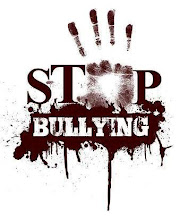Parental relationship
Bullies tend to come from families that are characterized as having little warmth or affection. These families also report trouble sharing their feelings and usually rate themselves as feeling less close to each other. Parent of bullies also tend to use inconsistent discipline and little monitoring of where their children are throughout the day. Sometimes parents of bullies have very punitive and rigid discipline styles, with physical punishment being very common. Bullies also report less feelings of closeness to their siblings.
School failure
Bullies are usually not model students. Very often they are not doing well in school and do not have good connections with their teachers.
Peer rejection
Researchers who are interested in how children form relationships with their peers have identified four categories that describe how children relate to peers, based on having children name children that they like as well as children that they don t like:
- Popular children are those that many children say they like, and few children say that they dislike. These children have developed positive social and communication skills.
- Controversial children are both actively liked and disliked by many of their peers. They tend to have good social skills, but also exhibit aggressive behaviour. Class clowns often fit into this category.
- Rejected children are actively disliked by many of their peers and well liked by few of their peers. They show high rates of conflict, aggression, and immature play, and they have trouble taking the perspective of another person. They also have a hard time solving problems without resorting to violence. Rejected children are often prone to delinquency and dropping out of school later.
- Neglected children are seldom neither liked nor disliked by their peers. Although they are very shy, and may have low self-esteem, many neglected children do very well in school and are able to develop friends as they approach adolescence.
Bullies come most often from the rejected category, but they sometimes are popular children as well. Victims can be selected from any category, although neglected children often are more likely to be victims.
By: Nursazella



No comments:
Post a Comment